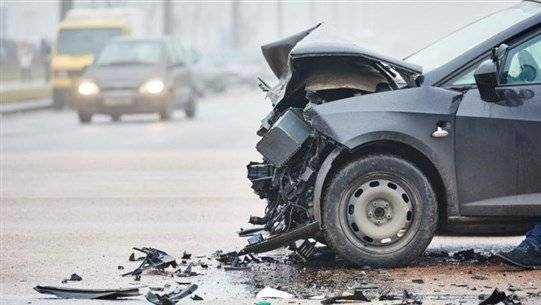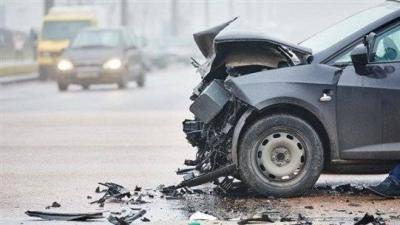In Lebanon, it is rare for a day to pass without the occurrence of fatal traffic accidents in a country where economic and social fundamentals deteriorate daily. Several factors converge to transform this reality into a tragedy that claims many lives, most of whom are young people.
While experts believe that the situation is more serious than the already inaccurate figures suggest, they assert that the causes of this mobile tragedy on Lebanon's roads are longstanding and newly exacerbated by the deterioration of the state and its institutions, as well as the economy, which has had a direct and indirect impact on the lives of citizens. The main problem lies in the state's neglect of this issue and the failure of responsible officials and ministries to enforce traffic laws. Recently added to these factors is the cancellation of mechanical inspections and citizens' inability to maintain or replace their cars after an unprecedented rise in prices and spare parts costs, resulting in more accidents and victims.
The case of Ahmad (60 years old) exemplifies the reality of Lebanese citizens. He candidly talks about his inability to maintain his broken-down car, which led him to decide to stop using it and revert to an older model. He tells "Asharq Al-Awsat": "I own two cars, one old dating back to 1996 which I had designated for mountain trips, and one from 2004. Unfortunately, the latter's engine broke down and requires $1,000 for repairs. I had no choice but to decide to stop using it in preparation for selling it and returning to the old one, which I hope would suffice, even though I know it might also break down unexpectedly at any moment, leaving me without transportation."
While the accident involving artist George Rassi, which led to his death and that of his manager about a week ago on the border road between Lebanon and Syria, drew attention due to his fame, many similar tragedies affect Lebanese families almost daily but remain hidden within walls away from the limelight.
This reality is highlighted by traffic safety expert Kamal Ibrahim, noting that preliminary figures show over 210 fatalities since the beginning of 2022 until August, with nearly 20 deaths recorded in just the last four days. He emphasizes that these numbers are only indicators reflecting the traffic safety reality in Lebanon and recalls that the World Health Organization states that due to the lack of accurate and reliable data in Lebanon on fatalities from traffic accidents, estimates approach a thousand deaths annually.
Public Works Minister Ali Hamieh acknowledged that all roads in Lebanon suffer from issues, pointing out that his ministry's budget is 39 billion Lebanese pounds, approximately $1 million only. At the same time, he pledged that he would "not remain idle in the face of the traffic accidents occurring in Lebanon." He said: "There are three pillars that are a fundamental factor in traffic accidents: the roads, the driver, and the vehicle."
Regarding this issue, Dr. Ziad Aql, President of the Yaza International Association (which focuses on traffic accident awareness in Lebanon), told "Asharq Al-Awsat": "By the end of August, we are living a significant tragedy on Lebanon's roads. One of the main reasons contributing to the increase in the number of accidents and thus fatalities is the financial inability of people to maintain their vehicles and the poor management of the issue. Moreover, the Ministry of Public Works and municipalities are not maintaining roads, and laws are not being enforced." He summarizes the reality by stating, “We are facing traffic accidents in all their causes, due to the poor quality of roads, lack of awareness, and failure to implement traffic regulations. If the situation remains unchanged, we will be faced with further increased accidents in the coming period."
Kamal Ibrahim further explains that the most critical problem is the lack of attention from the state and its officials to traffic accidents, which have exceeded the number of fatalities in the Beirut port explosion within less than a year. He emphasizes the need to apply traffic laws that mandate the establishment of a leading body for traffic safety, while the National Council for Traffic Safety, chaired by the Prime Minister, has not convened even once during the terms of Prime Ministers Hassan Diab and Najib Mikati. The same goes for the National Traffic Safety Committee, led by the Minister of Interior, which has also not met for over a year.
Ibrahim points out that the "Traffic Control Room," which was supposed to monitor traffic accidents, has previously been damaged in the Beirut explosion and has yet to be repaired. The security forces are performing their duties under minimal required conditions. He also highlights emerging reasons contributing to the increase in accidents, expected to multiply in the winter season. For example, the absence of speed traps and traffic signs on the roads, along with diminished road maintenance operations. He notes that the state’s decision to stop the annual mechanical inspections, which required regular monitoring of vehicles by adhering to specific standards, has intensified the risks of traffic accidents.




